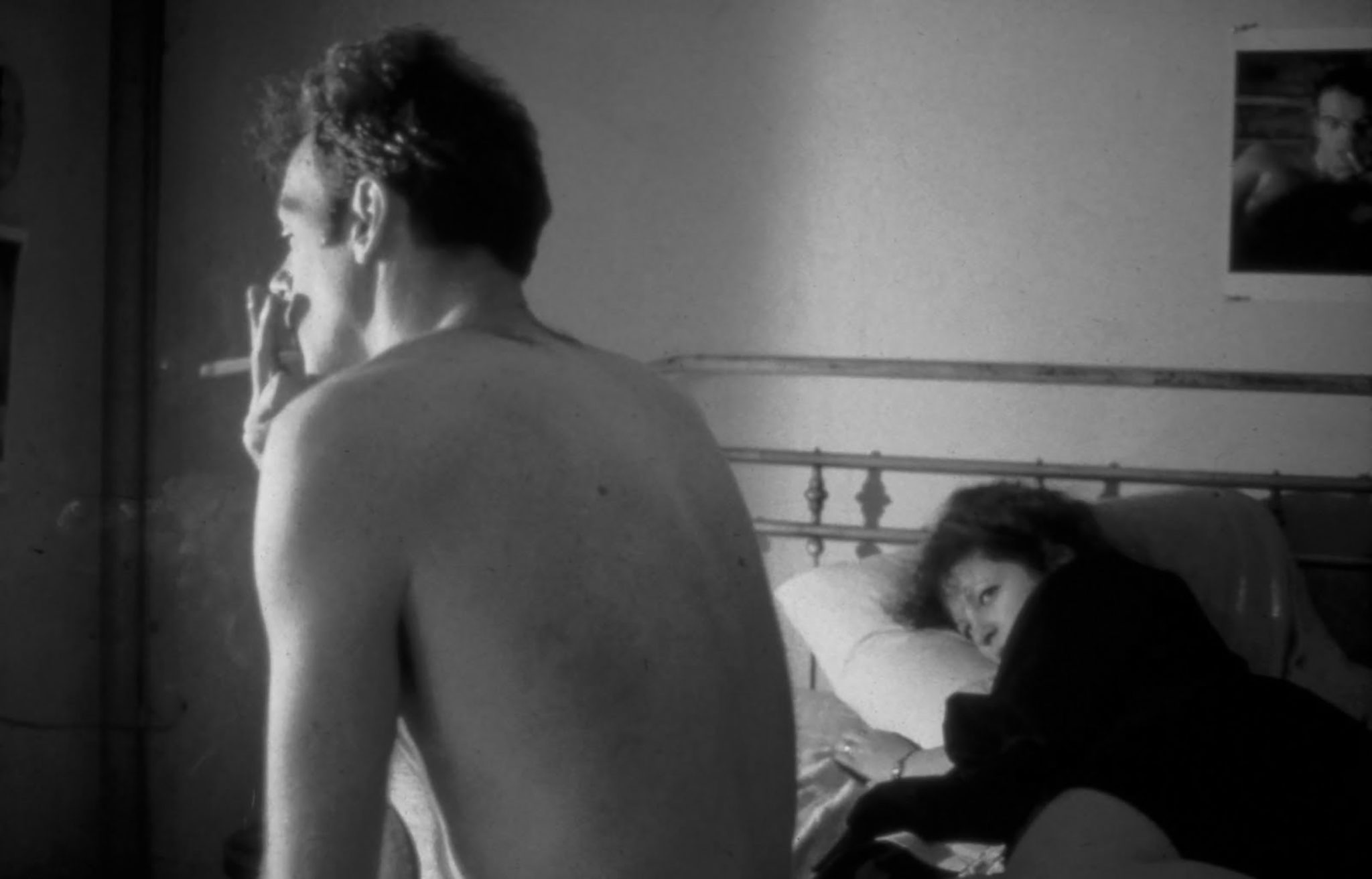Billy was a boy who had liked my sister the summer she graduated from high school. He took her to eat ice cream and see movies about dolphins which she described as “fascinating.” Katy stopped caring about things after she got into college. She passed that summer with a restless, undirected passion, teetering on the edges of backyard swimming pools and benches outside of Dairy Queen windows. When she came back for Christmas break, she painted her nails scarlet and asked me if I thought nihilism was sustainable.

The summer Katy turned twenty, I was almost fourteen. I was on the soccer field and it was darkening when I saw Billy on the edge of it, by the woods. Billy was tall and dark, with a shock of ash blond hair. I had seen him enough times on our front porch—white collared shirt smelling faintly of smoke—that I knew him by silhouette. I had told Katy once that Billy was…good-looking. No homo. She had twisted her lips in a funny way. “I think he’s too thin,” was all she had said.
So I was surprised to find the silhouette at the edge of the woods even thinner than I remembered. Katy had gained weight in college. I was supposed to be going home, but I thought it was only polite to say hi. I kicked the ball in a long pass over to Billy, who stopped it with his foot. A flame went off. He was lighting a cigarette.
He kicked the ball back to me. “Katy’s brother, right?”
He was alone. I watched the smoke consume his face, again and again.
“I was just playing soccer with my friends. I’m walking back soon.”
“Cool. Well, it’s good running in to you.”
I stopped in front of him, dribbling the ball back and forth. He dug into his pocket and then held out his hand.
“Want a cigarette?”
When I was twenty I would have my first cigarette. In that circle of people with laughs that were too loud and a night that was feeling thin, I would begin to wish I had taken my first smoke with Billy instead. After all, Katy had said he was a gentleman about it.
I stood and stared. “I don’t smoke.”
“Oh, shit. I forget that you’re like, barely a teenager.” Billy laughed and brought his hand back. He smoked with a plaintive vigor.
“I am too. I’ll be fourteen at the end of August.”
“Did you enjoy thirteen?”
I nodded.
“Well, good for you. I hated thirteen. Middle school was a dark tunnel. If anyone tells you high school is better, don’t believe them. Well, ok, it’s a little better. But not much.”
I asked him, “Do you go to college?”
“Of course I do.”
“Where do you go to school?”
As he told me he lowered his head a little. “God. You must think I’m such a bum. ‘Do I go to college?’ I do, little man, of course I do.”
I shook my head. I didn’t think he was a bum. I thought he was confused, maybe; misdirected. He was Billy, after all—Katy, my sister Katy, had kissed him—so I made excuses. I thought that someone, anyone, wearing a dirty band t-shirt, smoking alone on a Sunday afternoon, must simply be in transition.
He didn’t believe it either—Billy still thought highly of himself. Sure, he was not the young man wearing mint green with my sister’s hand on his chest—sure, Billy did not seem to have a summer job—sure, Billy showed me, later that summer, how to pack marijuana, and how to dissolve candies into vodka—but Billy was Billy. He had not lost the teenage glamour that boys shed like snake skin to appear like different men. He still had what I could only describe as a weekend invincibility. A penchant for welcome self-destruction.
“So, where’s your sister?”
Of course he was going to ask that. Of course he already knew where she was, because of the Internet—in Nantucket, with her boyfriend Paul with his Nantucket Red chino shorts with printed boats sailing across them like Christopher Columbus finding the new world between his legs. Nantucket Paul with his Nantucket shorts and his Nantucket Nectars in suspiciously Snapple-like bottles. My sister’s hand on his chest. I said, “She’s away.”
“So I figured.” He took a long drag. I said, “I should probably go home soon. Dad’s cooking dinner.”
“It’ll be good?”
“No, but he doesn’t cook that often, and he’s always good at mixing it up.”
“Mix it up, little man, that’s the way to go.”
“Haha, yeah.” I said haha. I pronounced the two syllables distinctly. Ha-ha. Only after I picked up my ball and left the field did I realize that it might have come off as condescending. I ran into Billy again the next weekend in the same place. If he had been offended, he didn’t show it. He was remarkably nice, I realized. Here was a person I couldn’t describe as friendly or kind, but would be remiss not to call nice.
It was also remarkably easy to condescend to him. He stood with a quiet grace; a suspended absence. His presence invited kids like me to go over and get offered a cigarette and then refuse said cigarette. I wondered if he still watched movies with dolphins. I asked him once if he missed high school. He said he couldn’t really remember.

Leave a Reply